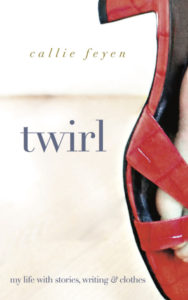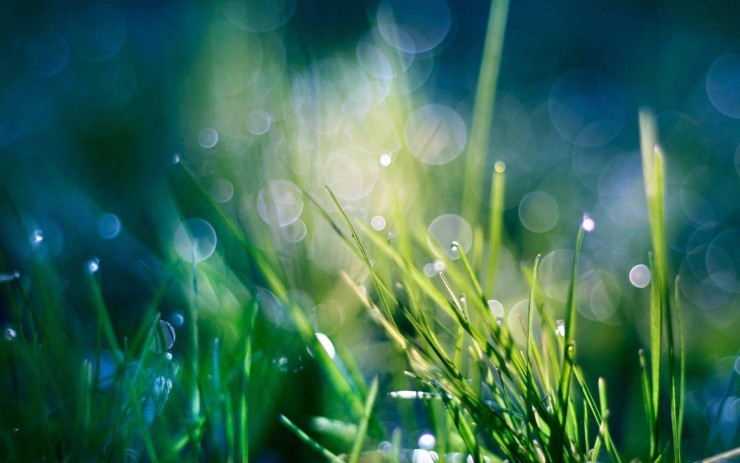Sometimes spring seems far away, and so we must use all we have within us to hunt for it.
Recently, a few groups of second graders and I had a conversation about spring. Specifically, spring in Michigan. When I asked them to share their thoughts about this season in the Mitten State, shoulders shrugged, students looked at the ceiling or at their laps (if you can’t say anything nice, don’t make eye contact). Some offered a measly, “It’s OK.”
One boy, who never wants to sit down when I ask him to, who is never interested in participating appropriately or at all in any of the activities or conversations we have, said, “Spring in Michigan makes me feel weird.” He was lying on his side, picking at the carpet when he said it.
“Yes!” I exclaimed. “Me, too!” I think I shocked him with my exuberance.
“Why do you feel weird during a Michigan spring?” I pursued.
“Well,” he said, sitting up and crossing his legs, “It’s still cold enough for a hat and a winter jacket, and I think it shouldn’t be that way.”
“Exactly,” I said. “It’s like nothing’s changed.”
“Spring makes me feel frustrated,” another student, perhaps inspired by her peer’s honesty, said.
“Tell me about it,” I vented.
“I want to wear shorts.”
“It’s too cold for baseball practice.”
“I want to see flowers!”
“And the sun!”
I told the students that I get a real attitude problem around this time of year because something I think should be happening is not.
“Every year around this time, I get kind of naughty,” I confessed to them.
They looked at me skeptically. Who’s ever heard of a reckless librarian?
I told them about my elementary school librarian. I said that once, on a day when we were being awful and rowdy, she told us in a sort of desperation to look out the window.
“So we did,” I told the students.
“Look at the leaves,” my librarian said, and sure enough, it was as though buds popped from the oak branches outside just for us, as if to say, Hey, there. We are just getting started.
“Spring happens whether it’s how we imagine it or not,” I told the group. “Sometimes it’s almost invisible.”
Sort of like the growth and change that happen during a school year. Sometimes it’s not so obvious. Sometimes we have to be observant and sneaky, like poets, and hunt for the change.
So that’s what we did.
With clipboards and pencils, we went outside, picked up branches and smelled them, stepped on mud and noticed it was softer and squishier than it was last month. We noticed worms on the ground. We brushed grass and pointed to brave and quivering flower petals. One student noticed that her footsteps sounded different on the sidewalk when there was no snow on it. “There’s no crunch!” she said, tapping and then jumping on the cement.
It was an exercise in using all our senses to acknowledge spring.
When they got to “taste,” many students were confused about what they should write.
“How do we taste spring?”
“I’m not eating grass!”
I suggested thinking about what they might eat in the spring: ice cream, a hot dog, grilled veggies.
“Mrs. Feyen, Mrs. Feyen,” said the boy who admitted spring makes him feel weird, while he tugged on my jacket.
“Yes?”
“Mist,” he said. “I taste mist in the spring.”
I smiled. Yes, mist. That strange in-between precipitation that makes us feel, well, weird.
“And what does mist taste like?” I pushed, seeing if he’d play along.
“Fresh,” he said. “It kind of makes me cold, but not dark cold.”
We walked back to the library together, and I considered this boy I’ve known since he was in kindergarten, when I showed up in the middle of February with not a clue about what it took to run a library, but hoping my love of sharing stories would be a good enough place to begin. For two and a half years he’s been the first one in his class to walk into the library. He always picks a spot in the front row, but only sits when I begin a story — never when I ask him or tell him to sit.
A softening or a hardening, or maybe it’s an opening happens to him every time he listens to a story. Like me, when he allows a story to come in, it’s a physical thing. The exchange is invisible. The change, I’m beginning to understand is not.
Maybe stories are a good enough beginning. Maybe I should let them do their bright green bursting through the winter branches work. Maybe each spring we are all just getting started.
Try It
For this week’s poetry prompt, take a walk outside and notice spring using each of your senses. Write a poem from what you observe.
Featured Poem
Thanks to everyone who participated in last week’s poetry prompt. Here’s one from Richard Maxson we enjoyed:
Night Wind
I looked for you in the wind; I thought I heard your breath
against my ear, rising and falling. I thought I felt your
fingers in my hair, pushing it back. And like opened doors,
I saw the leaves go silver as they turned, and beyond,
each one revealed a universe of midnight starry skies,
appearing and subsiding at your touch. Was it the wind or more
at work? I looked for you behind each one. Was it you or
my heart’s desire to see the stars as your bright eyes.
I reached for you in the air, but the warmth was the night,
it slipped from my arms without a trace, and I turned
to follow you, thinking I saw your face, but it was moonlight.
I listened everywhere and every sound I ever learned
I heard, and felt again your breath—I thought I heard you sigh.
I looked for you in the wind. Was it you I felt pass by?
Photo by Pedro Fernandes Creative Commons via Flickr. Post by Callie Feyen.
A Writer’s Dream Book

—Sarah Smith, Executive Editor Prevention magazine; former Executive Editor Redbook magazine
- Poetry Prompt: Courage to Follow - July 24, 2023
- Poetry Prompt: Being a Pilgrim and a Martha Stewart Homemaker - July 10, 2023
- Poetry Prompt: Monarch Butterfly’s Wildflower - June 19, 2023

Linda says
Weekend in Maine
Saturday walk through
town the patter of rain
on a large black and
white umbrella was
quiet and soothing.
Foggy mist made
our three mile hike
around Jordan Pond
seem ghostly and
of another world.
Tall white birch trees
stood out against
the darkness of
sleeping branches
and dead fall leaves.
A snow covered icy
path could only be
traveled while wearing
heavy boots and with
spiked tipped poles in hand.
Getting back in the car
enjoying the scent of
coffee anticipating the
sweet granola bar all was
cozy and warm again.
Sunday morning
rising of the sun was
like fireworks over the
bay while ducks paddled
and boats took rest.
Then chasing again to
the lighthouse where I
never wanted to leave the
pounding waves on the
rocky shore where I sat.
Springtime in Bar Harbor
and Acadia National Park.
A dream realized Maine
and another park with
family I dearly love.
Stephane says
5 senses haïku
According seasons
Snow tasted, flowers smelled, birds heared
Rain touched, life viewed
Katie says
Morning Walk
Sunlight slants through
towering poplars.
Doves coo gently
above on the wire.
Red berries hang
low on a limb.
Hawk lifts swiftly
off the ground.
Soft breeze stirs
feathery Mimosa blooms.
Dew drops glisten
atop blades of grass.
Pedestrian footfalls
eyes and ears alert.
Azure sky domes
over us all.
Linda says
Beautiful. I feel like I am there!
Richard Maxson says
Thanks for featuring my poem, Callie. And thanks for removing my morning blunder.